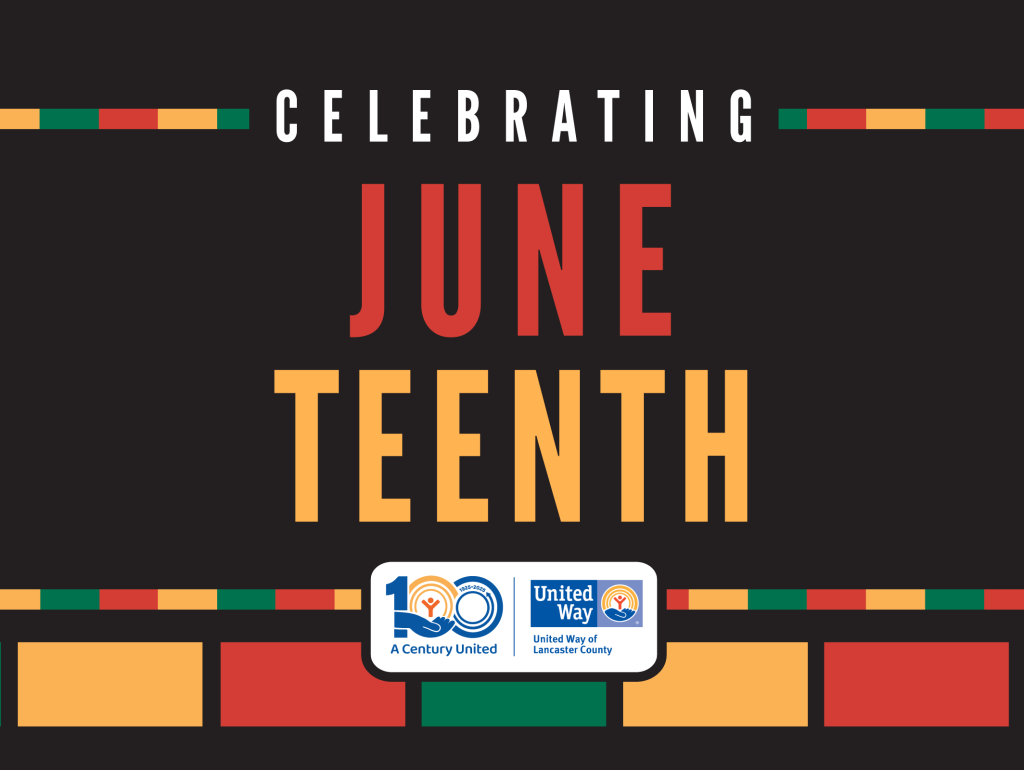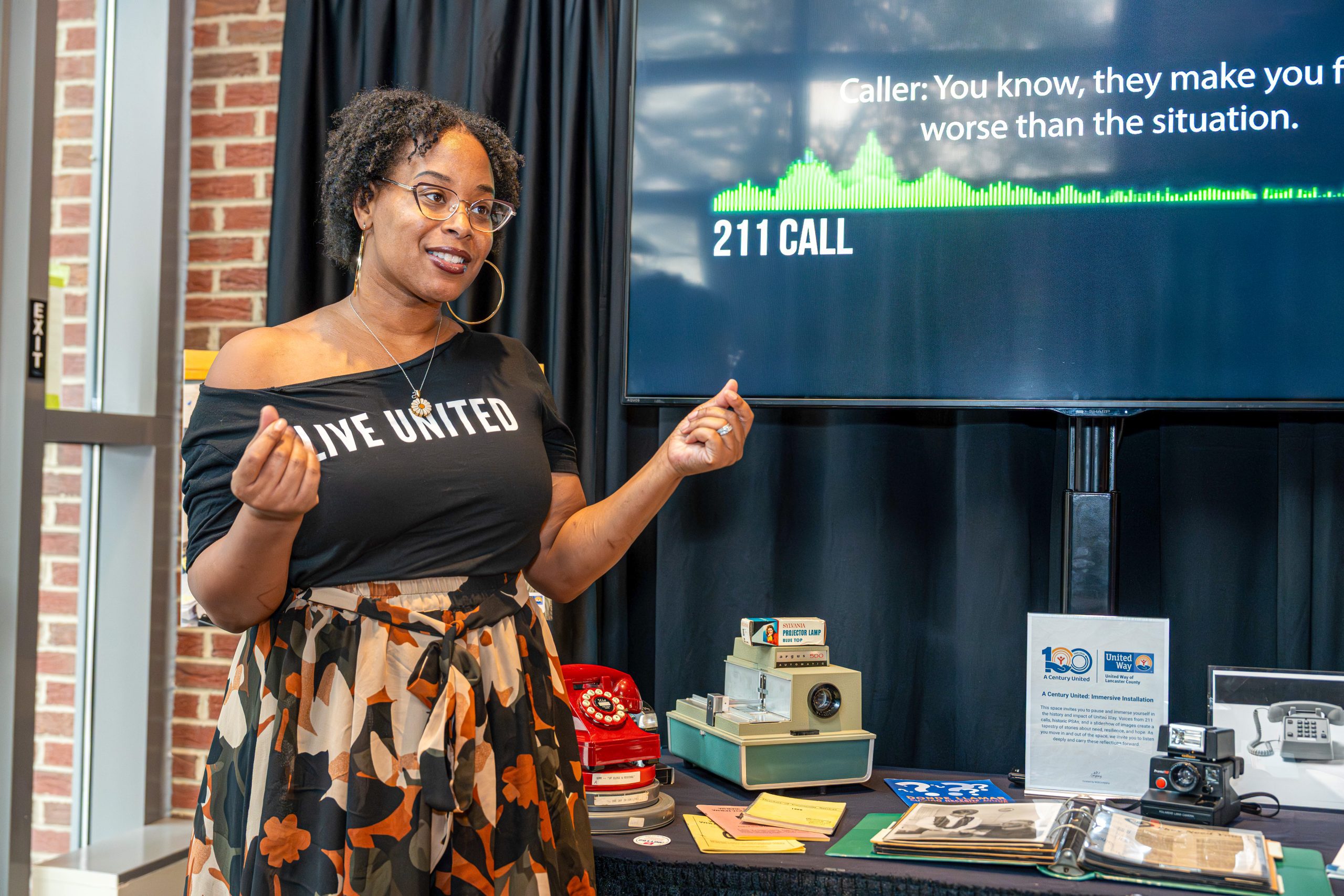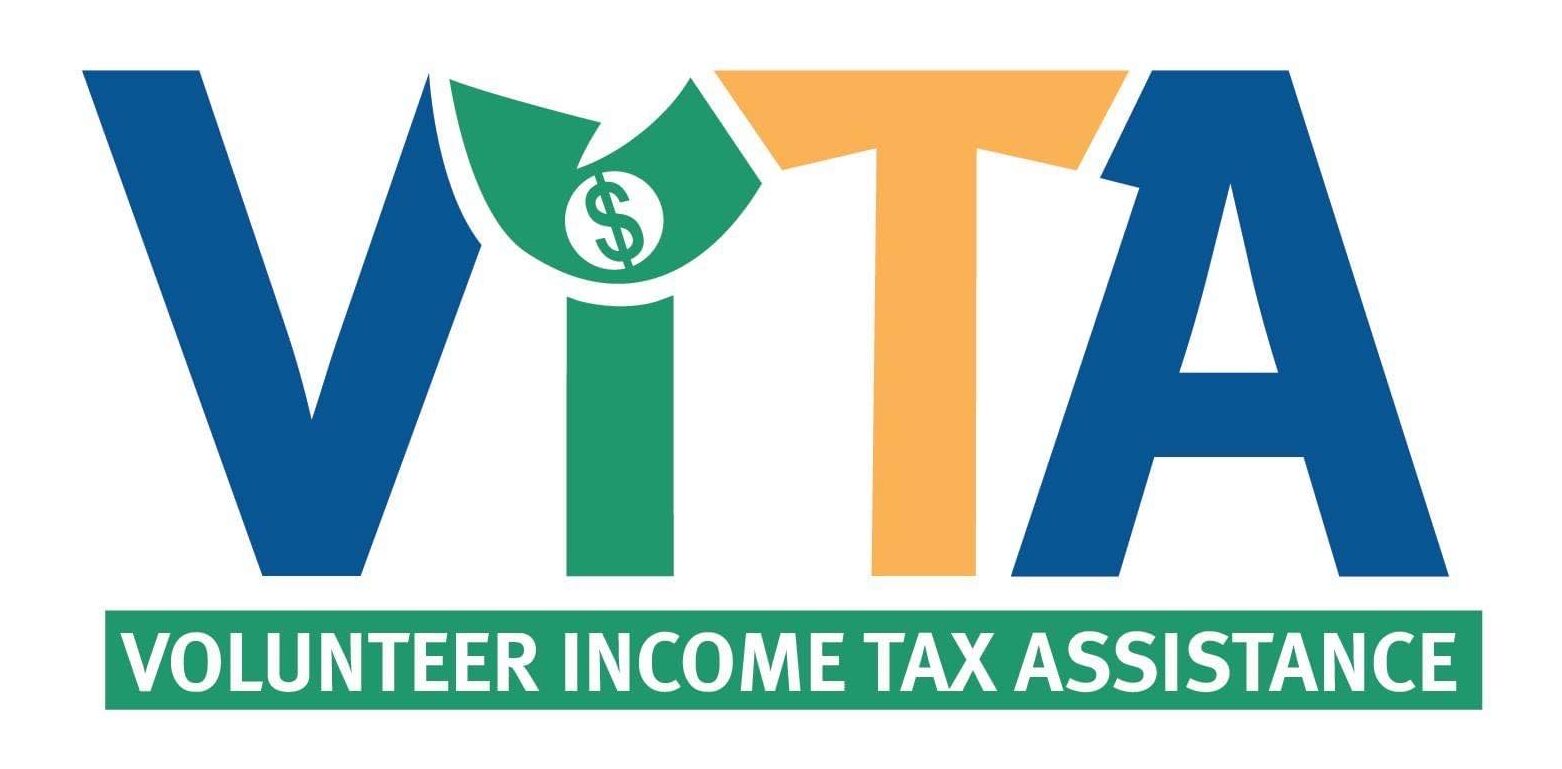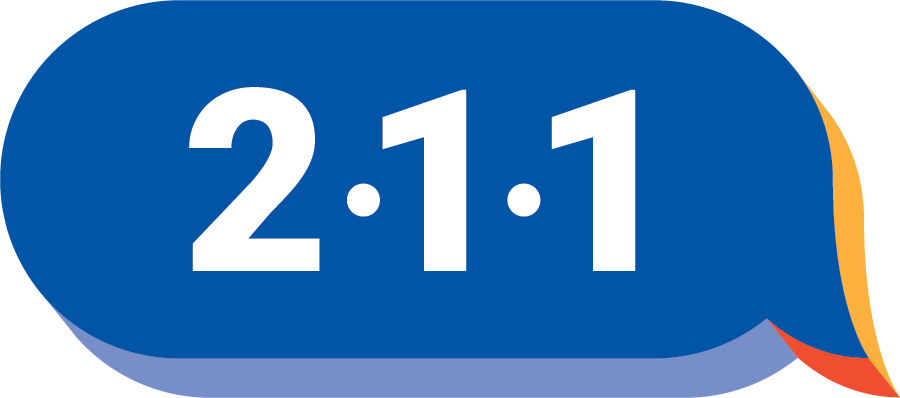By Andi Gates
Juneteenth, also known as Freedom Day or Emancipation Day, is a federal holiday on June 19 that can mean a day off, but what’s the history behind it?
What is Juneteenth?
Britannica, an online encyclopedia, outlines the holiday starting in 1863 when the Emancipation Proclamation was issued. This statement, made by President Abraham Lincoln, declared that all enslaved people living in the Confederate states would be free. This news reached ALMOST everyone.
Enslaved African Americans in Texas had heard nothing of the Emancipation Proclamation until 2 years after its declaration. The news finally arrived on June 19, 1865, and along with it came a celebration. People broke into song and dance, prayer and even feasting.
The first ever official Juneteenth celebrations took place in Texas the following year. Celebrations at the time typically included spiritual singing and prayers, but the celebration didn’t stop there. Other states began to pick up on the holiday, and the celebration of freedom became a tradition.
Texas made Juneteenth an official state holiday in 1980, and many other states followed suit. However, Juneteenth didn’t become a federal holiday until 2021 thanks to activists, like Opal Lee, who raised awareness of the holiday and its importance.
Who is Opal Lee?
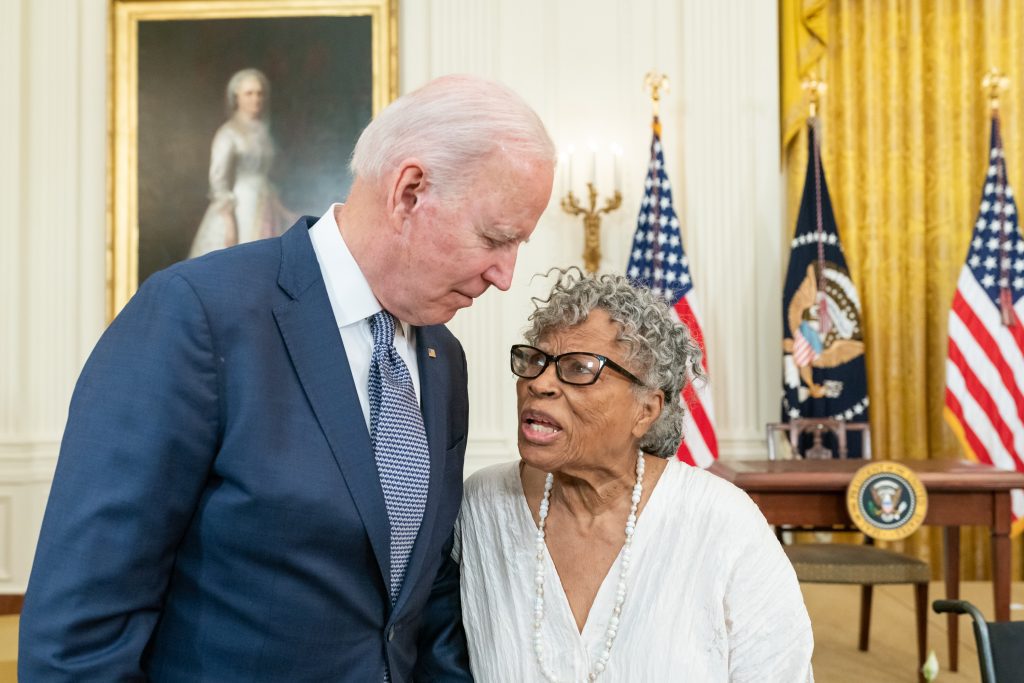
Opal Lee, also known as the “Grandmother of Juneteenth,” is an activist who was extremely vocal when it came to advocating for Juneteenth to become a federal holiday. A Texas native, Opal was surrounded by Juneteenth celebrations throughout her childhood.
At 9 years old, her family moved to Fort Worth, Texas, where the celebrations were privately held in homes. This is where things took a turn for Opal. During a celebration in 1939, a white mob surrounded her family’s home and reduced it to ash, leaving a lasting impact on Opal and her family.
At 16 years old, Opal graduated high school and went on to be an educator in the Fort Worth Independent School District for 15 years. She’s held a variety of other roles prior to expanding her activism reach after retiring at 51 years old.
Opal took on planning Juneteenth celebrations the same year she retired and would continue to be the heart of the celebration for 40 more years. At 89 years old she organized a 1,400 mile walk from her Texas home to Washington, D.C. Opal walked 300 of those miles in 2.5-mile increments which the National Women’s History Museum stated was to commemorate “the two and a half years it took for the news of the Emancipation Proclamation to reach enslaved individuals of Galveston, Texas.”
In 2021, Opal was able to watch President Joe Biden sign the Juneteenth National Independance Day Act making Juneteenth a federal holiday. Opal’s activism journey still isn’t over. More information on Opal can be found here.
How is Juneteenth different from July 4th?
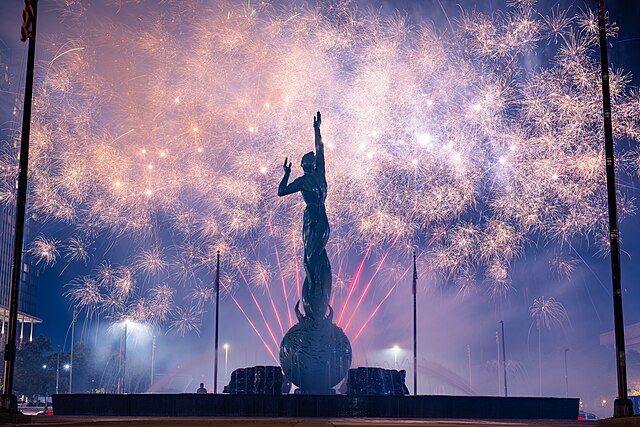
An interview from Smithsonian’s National Museum of African American History and Culture with Mary Elliot, Angela Tate, and Kelly E. Navies explores the difference between the two holidays.
Mary Elliot, Curator of American Slavery, that July 4th is about “imperfect” liberty as slavery was still legal across the nation.
Angela Tate, former Curator of African American Women’s History, explains it in the sense that Juneteenth is ever moving, it continues to adapt to the time as people continue to fight for social change. She says, “Juneteenth requires you to be present, in the moment, and very specific about why you are showing up to celebrate it.”
Kelly E. Navies, Museum Specialist of Oral History, echoes similar thoughts to Angela and mentions that the history of slavery in America and Juneteenth should be brought to classrooms to educate everyone on its history.
As Mary Elliott mentioned in her interview, July 4th marks the birth of a nation that proclaimed liberty that did not extend to everyone. Juneteenth honors the individual freedom of enslaved African Americans that celebrates a more personal and complete realization of liberty.
How can you celebrate Juneteenth?
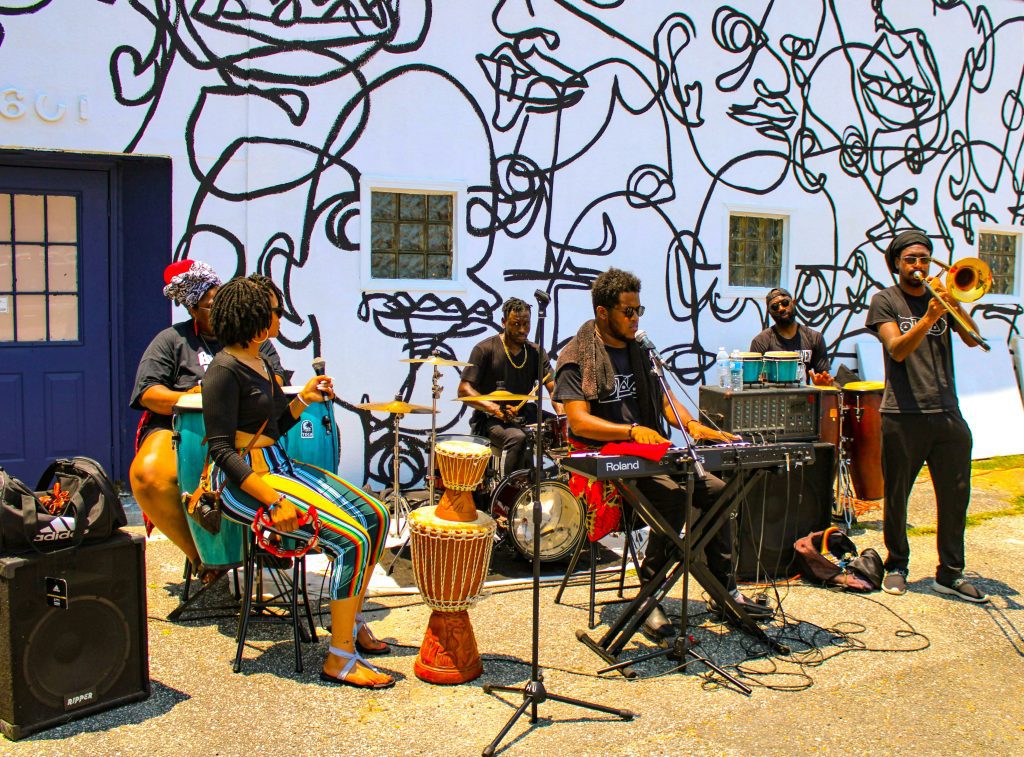
There are many ways to celebrate Juneteenth. From cookouts and block parties to museum trips and taking a stand for social justice, there’s a lot that you can do. But is there any one right way to celebrate the holiday?
I don’t claim to have all the answers, but I believe there’s no single “right” way to honor something meaningful. When it comes to Juneteenth, one of the best ways to celebrate is to stay informed. Learn about its history and origins. Attend a parade or a march if you can. Most importantly, stay aware of what’s happening in the world and show up for the friends and communities who are celebrating—or grieving. That support matters most.
References:
Gonzalez, Corina. “Opal Lee.” National Women’s History Museum, www.womenshistory.org/education-resources/biographies/opal-lee. Accessed 3 June 2025.
The Editors of Encyclopedia Britannica. “Juneteenth”. Encyclopedia Britannica, 2 Jun. 2025, www.britannica.com/topic/Juneteenth. Accessed 3 June 2025.
“Why Is Juneteenth Important?” National Museum of African American History and Culture, www.nmaahc.si.edu/explore/stories/why-juneteenth-important. Accessed 3 June 2025.
